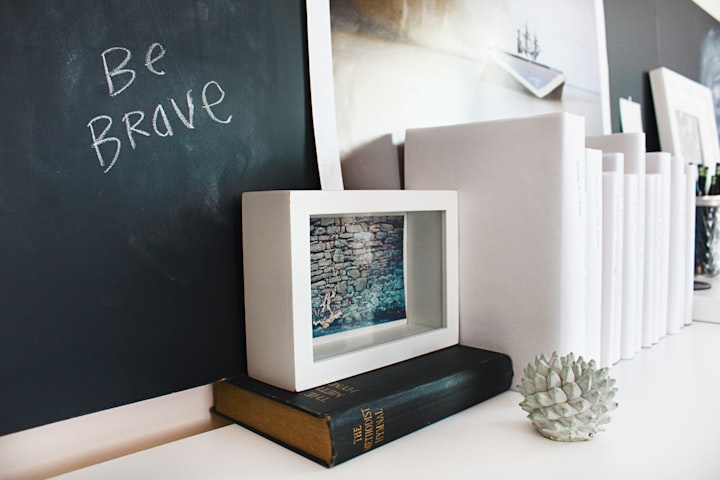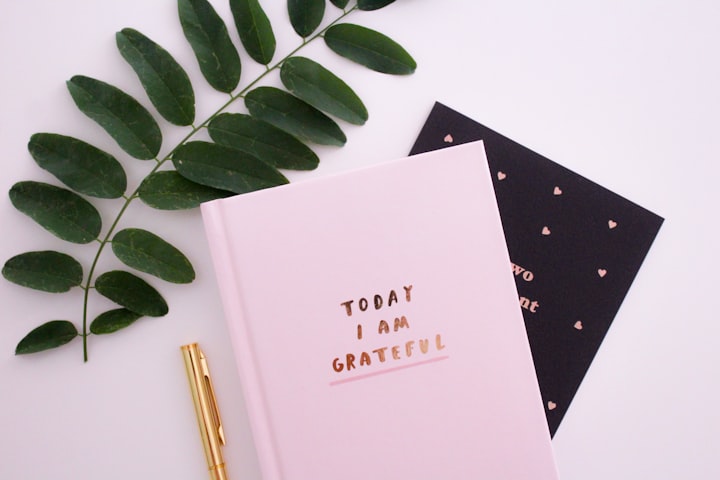How I Improved My Mental Health During a Lockdown
Many of these strategies are quick and easy

When your city is in a place where (say) cases of COVID-19 community transmissions are exploding; it can take a toll on everyone's mental health - irrespective as to whether or not you have your s**t together. Even if daily case numbers of this novel disease are on the low end; the restrictions enforced upon our freedoms in a global pandemic can affect anyone's mental health; from having to wear face masks, to not being able to travel as freely as you would have during pre-COVID. If you are an individual who rarely if ever gets sick, and all of a sudden you are coming down with something physically wrong; then chances are that physical ailment all began through your mental health being a bit off kilter.

In no way, shape or form am I am armchair epidemiologist; or a mental health expert, although yours truly has qualifications in psychology. Despite the latter, even if you are an expert in mental health; we can all experience a bit of depression and/or anxiety during these uncertain times, where the state of the world is in a flux of massive change and uncertainty. For example, the city I currently live in (Sydney, Australia as at the time of writing this) is nearing the end of a two-week lockdown, and uncertainty reigns as to whether or not the lockdown will end in the next few days as planned, or if will it be extended. Despite being in a peaceful place financially, and with my business being unaffected on a minor scale; I have still found myself experiencing a small dose of anxiety. The important thing is to stop it in its cracks, so it does not spread.
This article serves as a reminder to engage in a few simple and free tasks (that is, they do not cost you any money) to quickly and immediately improve your mental health in uncertain times, pandemic or no pandemic.

Firstly, it does not matter what happens to us, it is how we respond or react to what happens. It is human nature to react to a sudden surge in COVID-19 cases, or to any other form of bad news. Setbacks are a part of life, and they will continue to happen. It is important to accentuate the positive, yet things always happen for a reason; and when we are in a phase of disappointment - it is hard to see and appreciate the wisdom behind those words. Whatever happens, just notice it and do not react negatively to negative news; because that energy will then feed that setback even more. Let it be, and learn from it. Control what you can control.

If you want to give your mind some space, then please stop watching the news. If you have to watch the news, for example if you are in lockdown, and you want to know when lockdown is expected to end; then by all means quickly glance at the headlines, or just watch that few minutes to be informed, but not inundated. Have the willpower to switch off the TV once you have received the information that connected you to that news source in the first place. With padding on online articles, and on TV; the news corporations aim to evoke an emotional response out of you. This will only cause you to become more anxious. Switch it off.
Spending less time in front of a computer screen has also done wonders for my mental health, and that includes streaming shows on Netflix. Do not get me wrong, I love Netflix, yet it is easy to be in a relaxed, trance like state, and binge watch before your very eyes. Nothing gets done either. It is a given to give the screens a flick (even on your smartphone) at least two hours before bedtime. Sleeping poorly affects your mental health.

Easier said than done, I know, yet it is wise to also stop looking at your phone regularly, and especially first thing in the morning upon getting out of bed. I don't know about you, yet my morning's are precious, and I do not want to fill up my lovely mind with junk first thing, and neither should you. Treasuring those mornings, and being grateful for the day ahead (even documenting what you are grateful for in your life in a gratitude journal) keeps anxiety at bay.

Meditation (if you can handle it) is also a wonderful way to look after your mental health. Any downtime (me time) where you are being kinder to yourself (away from any screens) is the best, and physical exercise outside, and preferably in nature is a simple way to keep anxiety away. It is ideal not to bring your phone with you out on your walks. If you need to take your phone with you, simply get into the habit of only looking at your phone to track how many steps you have walked.
The simple things in life are often the best, and these tips are designed to eradicate a mental health problem like minor anxiety and depression; to catch it before it grows and becomes more serious. Of course, if you are concerned about your mental health, then professional advice is recommended, and should be acted upon.


About the Creator
Justine Crowley
Freelance Internet Moderator/UX Writer/UX Consulting Designer/Graphic Designer
http://smashwords.com/profile/view/JustineCrowley
linkedin.com/in/justinecrowley
Lives in Sydney, Australia. Loves life.






Comments
There are no comments for this story
Be the first to respond and start the conversation.